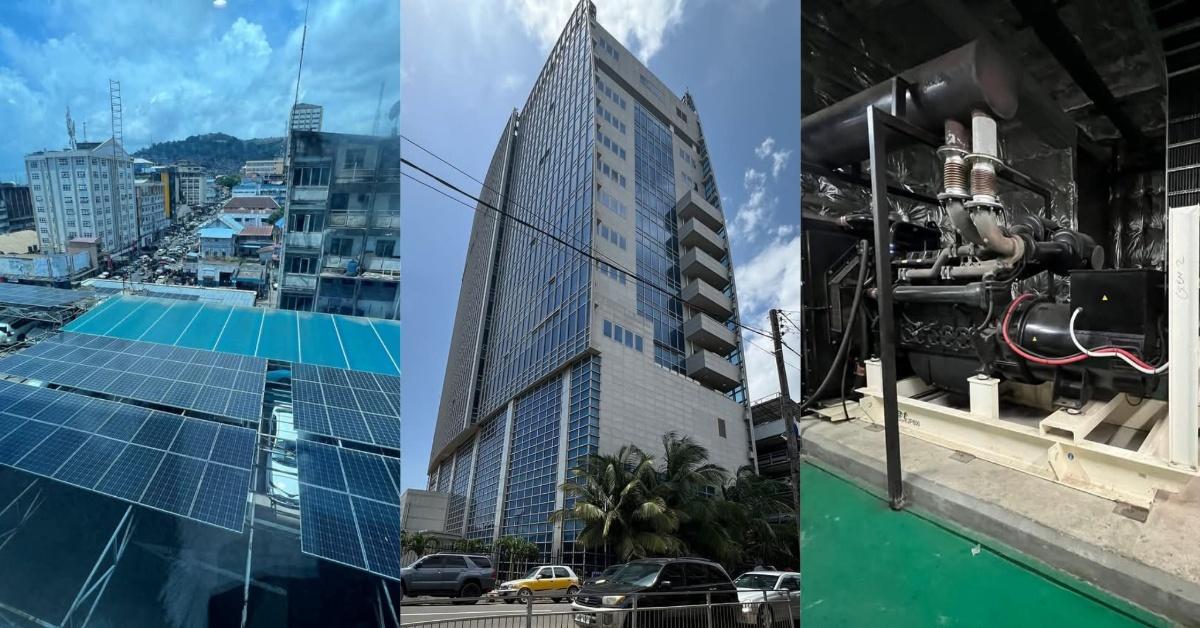Africa-Press – Sierra-Leone. light of the upcoming electricity disruptions, Freetown Mayor Yvonne Aki-Sawyerr has provided detailed information about the operational costs and challenges of running the iconic City Hall, urging residents to better understand the complexities of maintaining the high-rise facility.
The 17-floor building, which includes a basement and a rooftop garden, serves as the headquarters of the Freetown City Council (FCC) but also houses several government agencies and private businesses.
Among its occupants are Audit Service Sierra Leone (occupying two floors), the Presidential Initiative on Climate Change, Renewable Energy and Food Security (one floor), and three private companies (five floors). The ground floor hosts banking outlets, including SLCB, Ecobank, RCB, Zenith Bank, Access Bank, and CMB.
City Hall relies on a complex system of electrical infrastructure, including seven elevators, a high-capacity auditorium with advanced sound systems, a 400-tonne water tank (powered by electricity), fire sprinklers, and other critical equipment.
To mitigate frequent power outages, the building operates two 800 KVA generators—one active and one on standby. Running a single generator consumes 1,500 litres of fuel daily, costing a staggering NLe41,100 per day. While solar panels were installed after construction, their output remains insufficient to meet the building’s electricity demands.
Mayor Aki-Sawyerr shared these details to help Freetonians appreciate the financial burden of keeping City Hall operational, especially during prolonged power cuts. She noted that further operational details can be obtained from the Acting City Engineer upon request.
The disclosure comes as residents brace for increased electricity rationing, raising concerns over how public institutions will manage energy costs.
The Mayor’s transparency highlights the broader challenges of maintaining critical infrastructure amid Sierra Leone’s energy crisis.
For More News And Analysis About Sierra-Leone Follow Africa-Press






